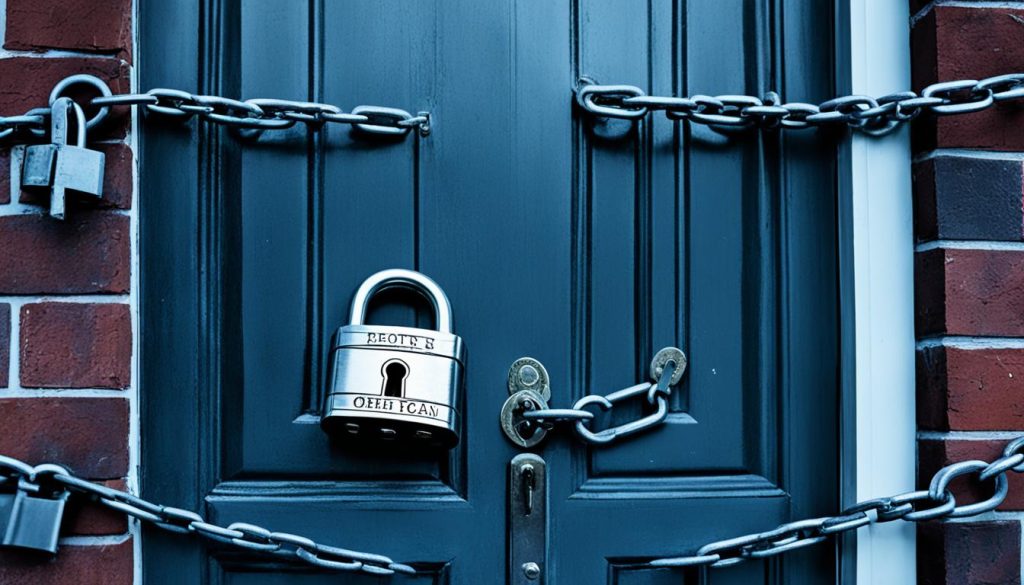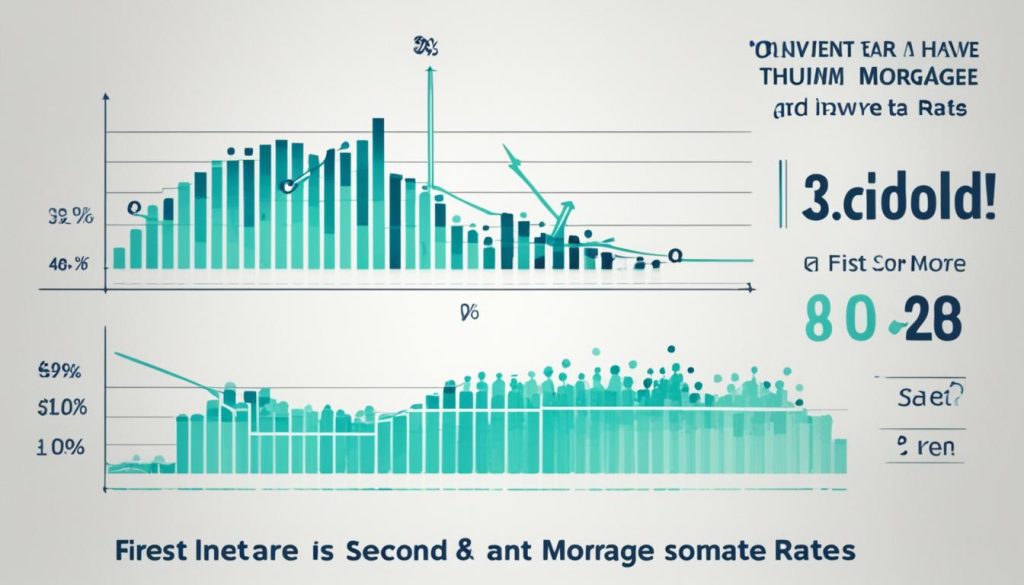Before you apply for a second charge mortgage, it is crucial to understand the details and important factors involved. This way, you can make an informed decision about whether it is the right option for you.
Let’s explore how second charge mortgages work and the considerations you should keep in mind.
What is a Second Charge Mortgage?
A second charge mortgage, also known as a secured loan or homeowner loan, is a form of borrowing that allows you to unlock the equity in your property. It is a type of property finance where you can borrow a lump sum of money using your home as collateral.
This type of mortgage is often used for various purposes, such as funding home improvements or meeting other significant borrowing needs. It offers an alternative to remortgaging or struggling to obtain unsecured borrowing, especially if you are self-employed.
How Does Getting a Second Mortgage Work?
Getting a second mortgage involves securing a loan on your property from a different lender than your original one. This type of loan, also known as a second charge mortgage, allows you to tap into the equity in your home to borrow a lump sum of money. While your first lender holds the primary claim on your property’s equity, the second lender becomes the secondary priority, making considerations regarding the property’s sale.
The amount you can borrow on a second mortgage depends on the amount of equity you have built up in your home. Lenders typically offer up to 75% of the equity in your property as borrowing capability. By leveraging the property equity, you can access funds for various purposes, such as home improvements, debt consolidation, or other significant financial needs.

Securing a second mortgage allows you to maintain your existing mortgage agreement with your first lender while using your property as collateral to obtain additional financing. This option is beneficial if you want to avoid refinancing your entire mortgage or paying high early repayment charges. It’s important to note that interest rates for second mortgages are typically higher than those for first mortgages, so carefully weigh the advantages and disadvantages before moving forward.
Why Take Out a Second Mortgage?
There are several reasons why someone might consider taking out a second mortgage. It can serve as an alternative to remortgaging, especially for those who want to avoid the high early repayment charges associated with their current mortgage.
Taking a second mortgage can also be a viable option for individuals who are struggling to obtain unsecured borrowing, such as personal loans. This is particularly helpful for those who are self-employed and may find it challenging to secure traditional forms of credit.
One of the advantages of a second mortgage is that it allows homeowners to access additional funds without having to pay a higher interest rate on the entire mortgage. This can be a significant benefit, especially if the funds are required for a specific purpose, such as home improvements or debt consolidation.
In some cases, a second mortgage may be seen as a more suitable option than a further advance from the existing lender. This is especially true if the terms and conditions of the second mortgage, such as fees and interest rates, are more favorable than what the existing lender offers.
Benefits of Taking Out a Second Mortgage:
- Alternative to remortgaging with high early repayment charges
- Access to funds for those struggling to obtain unsecured borrowing
- Potential for lower interest rates compared to other forms of credit
- Opportunity to secure additional funds without affecting the existing mortgage
- More favorable terms and conditions compared to further advances from the existing lender
Considerations Before Taking Out a Second Mortgage:
- Assess your financial situation and determine the amount of equity available in your property
- Compare interest rates and fees from multiple lenders to ensure you’re getting the best deal
- Consider the impact of a second charge on your overall financial obligations
- Consult with a qualified mortgage adviser to understand the potential risks and benefits
Ultimately, the decision to take out a second mortgage should be carefully considered based on individual circumstances and financial goals. By weighing the advantages and disadvantages and seeking professional advice, homeowners can make an informed choice that aligns with their needs.
| Advantages of a Second Mortgage | Disadvantages of a Second Mortgage |
|---|---|
| Access to additional funds | Potential for higher interest rates |
| Flexibility in using the funds | Additional financial commitments |
| Potentially lower interest rates compared to unsecured borrowing | Impact on creditworthiness |
What if You Move Home?
If you decide to sell your home, you will need to pay off your second charge mortgage. However, some lenders may allow you to transfer the second mortgage to a new property. It is important to discuss your options with your lender and consider any potential fees or restrictions that may apply.
When selling your home, paying off your second charge mortgage is a necessary step. However, if you wish to transfer the second mortgage to a new property, some lenders offer this option. It’s essential to engage in a conversation with your lender to explore whether this possibility is available to you. Keep in mind that certain fees and restrictions may apply, so thoroughly understanding the terms and conditions is crucial for an informed decision.
Discussing your specific circumstances with your lender will help you determine if transferring the second mortgage to a new property is a viable option. Some lenders may require additional documentation or perform evaluations to assess the feasibility. Additionally, consider any potential fees associated with the transfer process, such as administration fees or legal costs.
Key Considerations for Property Transfer:
- Potential Fees: It’s important to inquire about any fees that may arise from transferring the second mortgage to a new property. These fees can vary depending on the lender and specific terms of the mortgage.
- Restrictions or Requirements: Each lender may have different restrictions or requirements when it comes to transferring the second mortgage. Understanding these conditions will allow you to make an informed decision based on your circumstances.
- Property Evaluation: When transferring the second mortgage to a new property, lenders may require an evaluation or assessment of the new property to determine its value and its suitability for the mortgage transfer.
- Reapplication: In some cases, transferring the second mortgage to a new property may require the borrower to go through the application process again. This means providing updated financial information and documentation to the lender.
By exploring the possibility of transferring your second mortgage to a new property, you can potentially save time and money compared to paying off the existing mortgage and taking out a new one. However, it’s crucial to carefully consider all the terms, conditions, and potential fees involved to make an informed decision that aligns with your long-term financial goals.

When is a Second Mortgage Not a Good Idea?
Although a second mortgage can be a valuable financial tool, there are instances where it may not be the best choice. One crucial factor to consider is the interest rates associated with second mortgages. Generally, second mortgages tend to have higher interest rates compared to first mortgages. It’s important to carefully assess the pros and cons and evaluate the potential implications before committing to a second mortgage.
Taking into account the interest rates, it’s vital to understand how they can impact your overall financial situation. Higher interest rates mean that you will be paying more in interest over the life of the loan, potentially increasing the overall cost of borrowing. Consider whether the benefits of obtaining a second mortgage outweigh the potential drawbacks, and whether your financial situation can comfortably accommodate the associated interest expenses.
Furthermore, it’s essential to think about your long-term financial goals and how a second mortgage aligns with them. Evaluate whether the funds acquired through a second mortgage will be put to good use and contribute positively to your financial well-being. It may be beneficial to explore alternative options or seek the guidance of a qualified financial advisor to determine the most suitable course of action for you.
Remember, every individual’s financial situation is unique, and what may be advantageous for one person may not be for another. Assessing the interest rates and considering the pros and cons will enable you to make an informed decision and ensure that a second mortgage aligns with your financial goals.
Pros and Cons of Second Mortgages
When contemplating a second mortgage, it’s crucial to carefully evaluate the advantages and disadvantages associated with this financial solution. Here is an overview of the pros and cons:
| Pros | Cons |
|---|---|
|
|
Rigorous consideration of the pros and cons, alongside an analysis of your financial situation, will provide clarity and help determine whether a second mortgage is the right choice for you.

Some Things to Consider Before Taking Out a Second Mortgage
Before considering a second mortgage, it’s important to explore all available options, such as a further advance from your existing lender. Seeking advice from a qualified adviser will help ensure that you find the most suitable loan for your specific needs and financial situation. Here are some key factors to consider:
- Loan Terms: When comparing lenders, pay attention to loan terms such as repayment period, interest rate type (fixed or variable), and monthly payments. Understand the impact of loan terms on your overall financial stability.
- Fees: Different lenders may charge various fees, including arrangement fees, valuation fees, and legal fees. Take into account the fees associated with the loan to accurately assess the total cost of borrowing.
- Early Repayment Charges: Understand the terms and conditions regarding early repayment charges. Some lenders may impose penalties if you repay the loan before the agreed-upon term, which may affect your ability to switch to another mortgage or make additional repayments.
- Interest Rates: Compare interest rates among different lenders to find the most competitive option. Remember that interest rates for second mortgages are typically higher than those for first mortgages, so carefully assess the long-term cost.
When a lender presents an offer, they are required to provide a personalised document that clearly explains the terms of the offer. Take the time to review the document and ensure you fully understand the implications before making a decision. This gives you the opportunity to consider the loan terms, fees, early repayment charges, and interest rates carefully.
Example Table (Interest Rates Comparison)
| Lender | Interest Rate |
|---|---|
| Lender A | 4.5% |
| Lender B | 5.2% |
| Lender C | 3.8% |
Conclusion
Considering a second charge mortgage can be a smart move for homeowners seeking financial flexibility through their property’s equity. However, it is vital to carefully evaluate the advantages and disadvantages before making a decision. It is also worth exploring alternatives like equity release, as they offer different benefits and drawbacks.
When contemplating a second mortgage, it is advisable to consult a qualified mortgage adviser who can provide expert guidance tailored to your unique circumstances. Their valuable insights can help you determine the best course of action and make an informed choice.
Ultimately, whether you opt for a second mortgage or explore equity release, it is important to understand the implications and consider the potential risks associated with borrowing against your property’s equity. By conducting thorough research and seeking professional advice, you can make a well-informed decision that aligns with your long-term financial goals.






